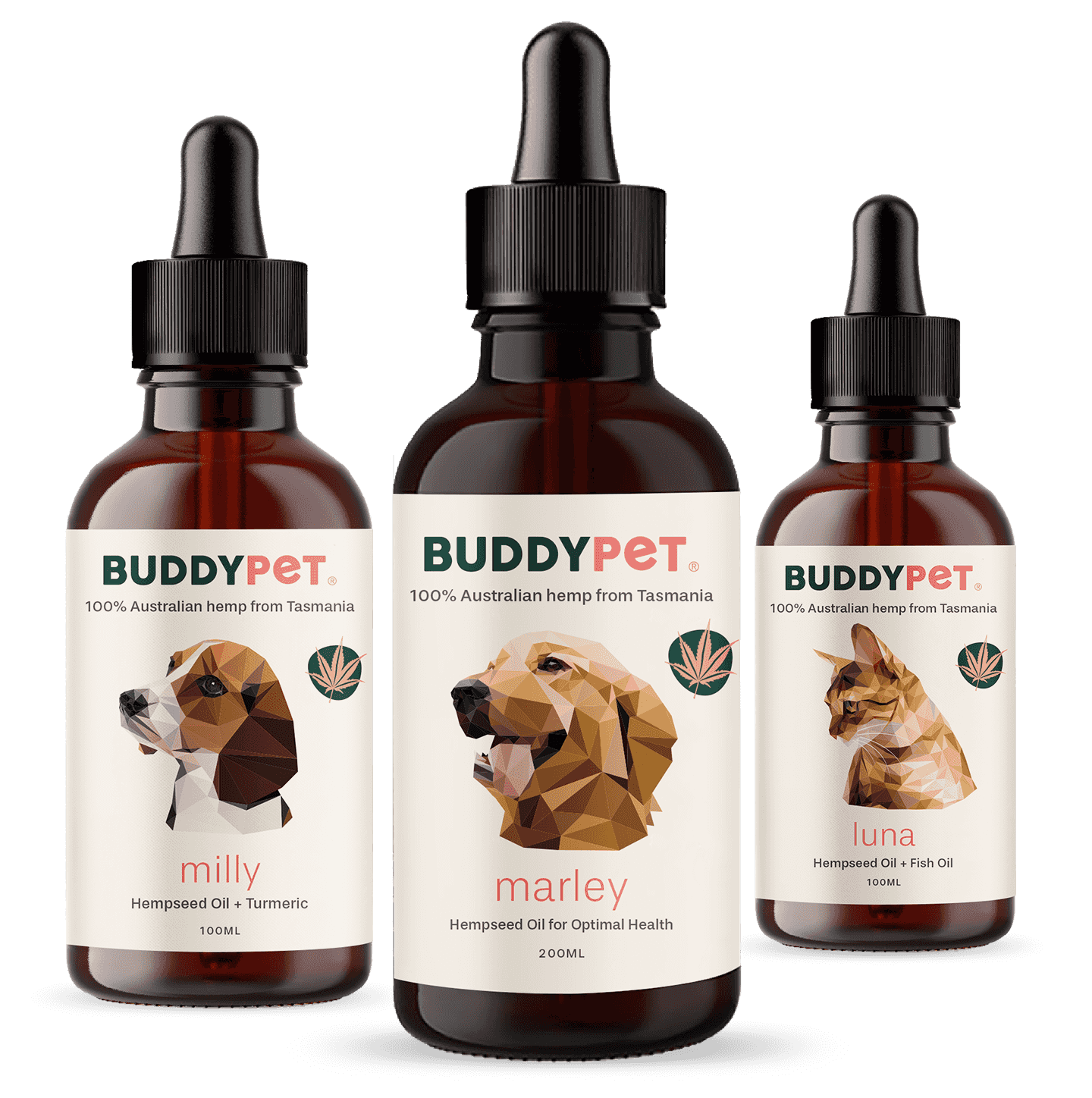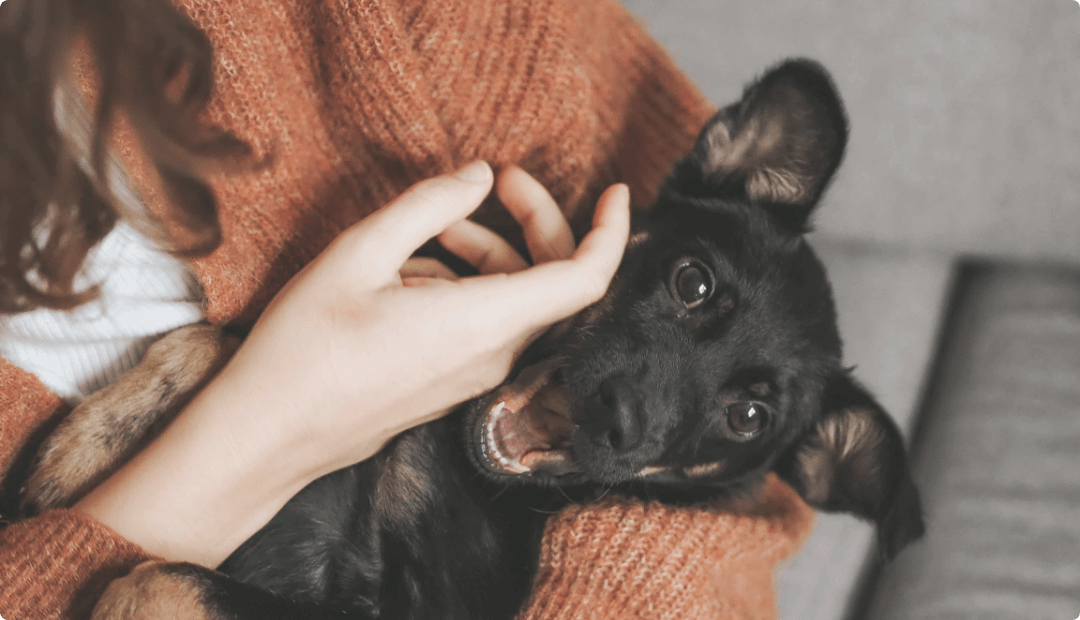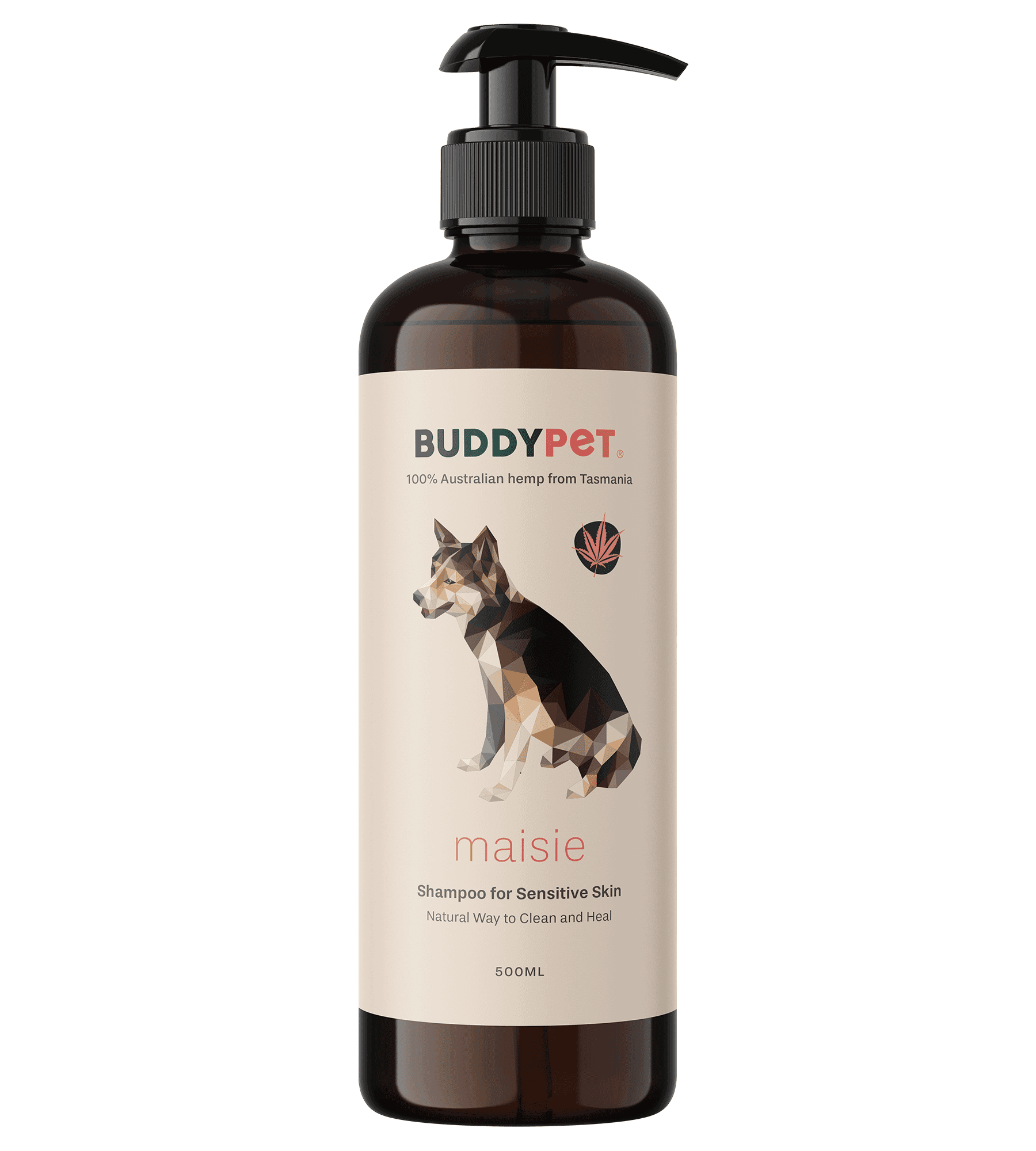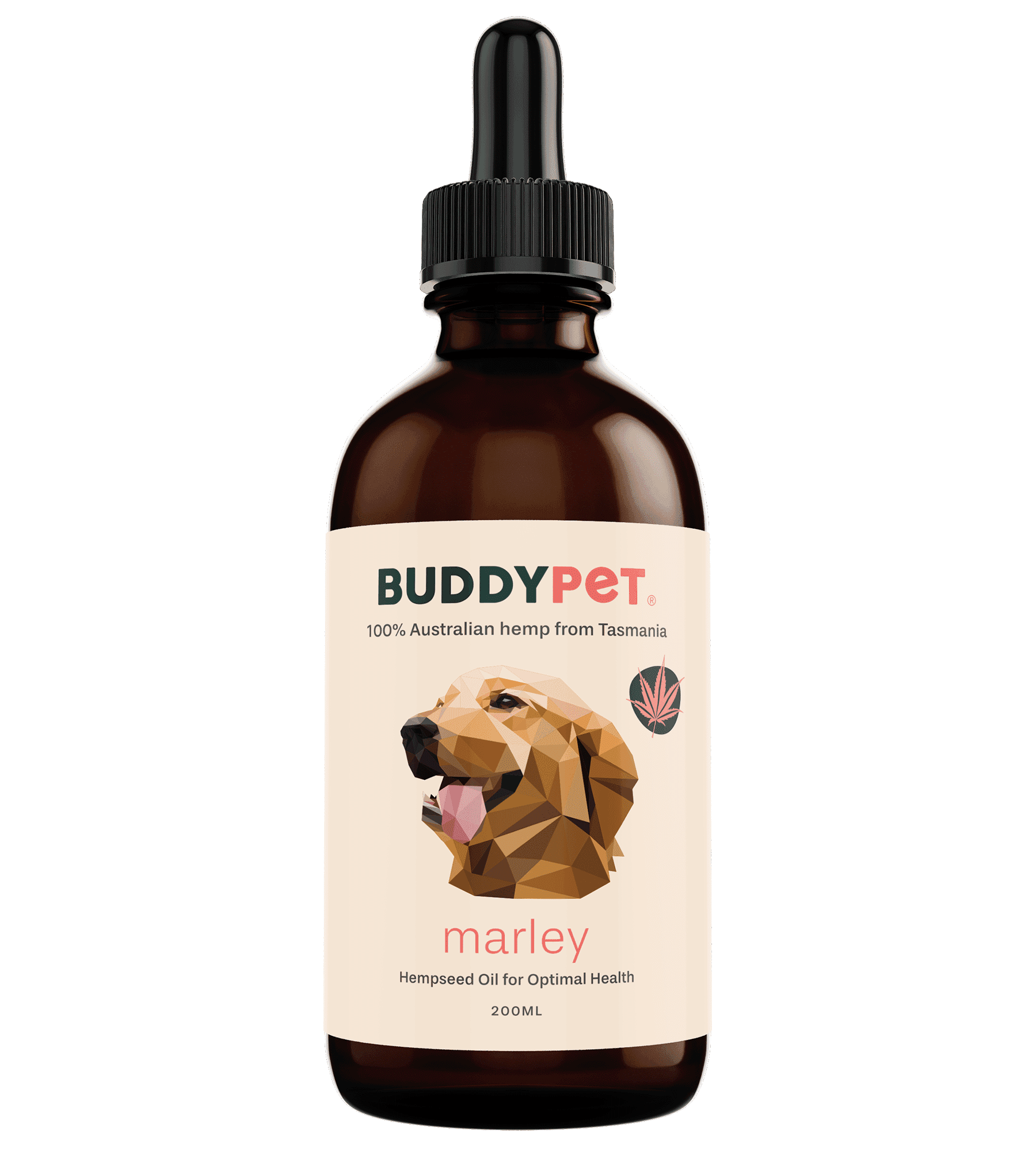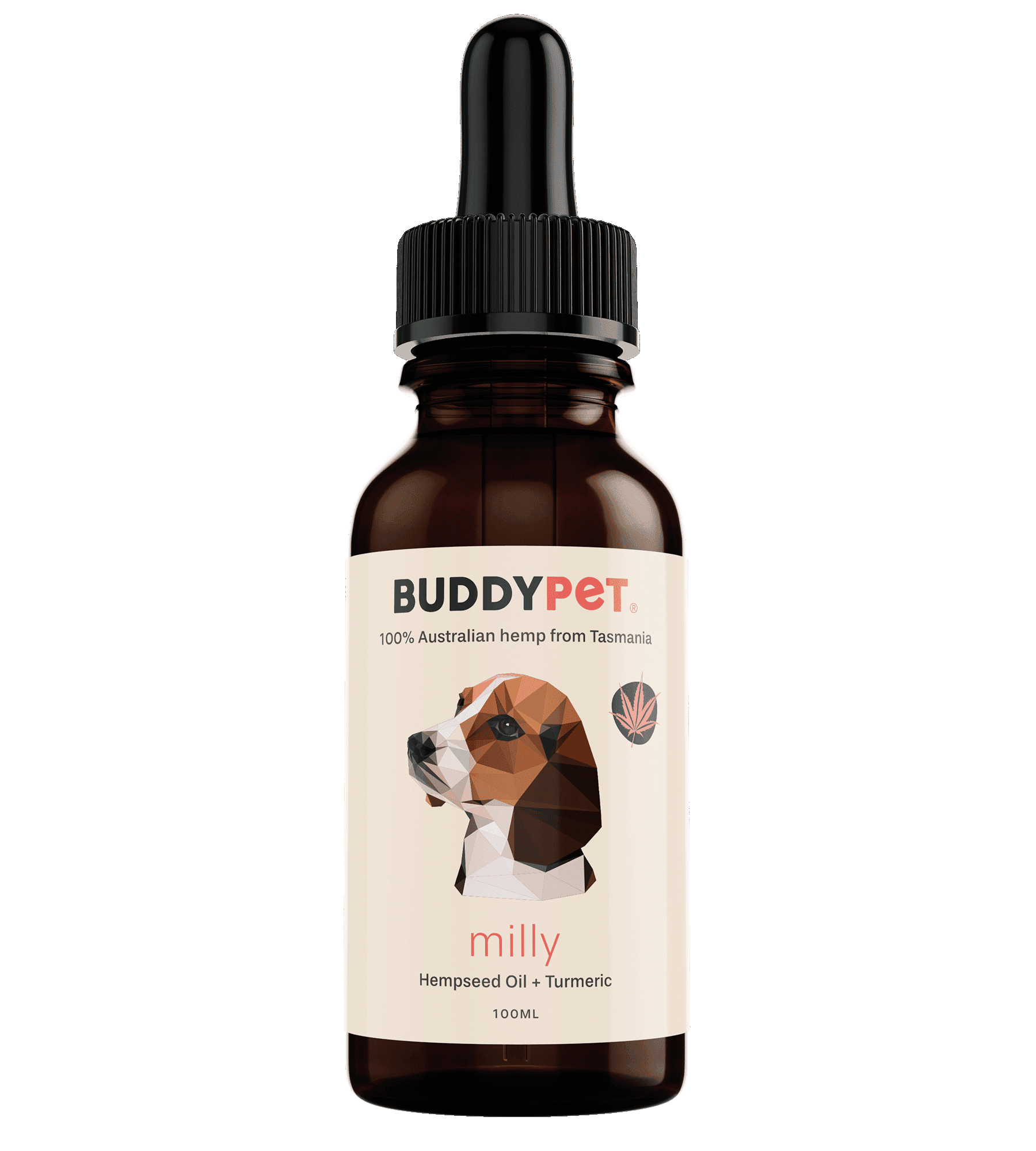The "Fat Dog" Epidemic
Once upon a time, being a "fat dog" was considered cute and cuddly. However, times have changed, and we now know that carrying extra pounds can lead to a host of health issues for our furry friends. Obesity in dogs is becoming a widespread problem, with studies showing that over half of the canine population is overweight or obese.
A Recipe for Disaster
Imagine your beloved pooch struggling to climb stairs, suffering from joint pain, or developing life-threatening conditions like heart disease or diabetes – all because of those extra pounds. A fat dog's quality of life can be severely compromised, and their lifespan may even be shortened. It's a heartbreaking reality that no pet parent wants to face.
BUDDYPET Cooper to the Rescue?
But fear not, fellow dog lovers! There's a potential solution on the horizon, and it goes by the name of BUDDYPET Cooper. This cutting-edge supplement promises to help you tackle your dog's weight woes, but we'll delve deeper into that later. For now, let's focus on understanding the issue at hand and why keeping your canine companion at a healthy weight should be a top priority.
Causes of Obesity in Dogs
The Culprits Behind the Chunky Pup
While a little extra fluff can be adorable, excessive weight gain in dogs is no laughing matter. But before we dive into the solutions, let's explore the root causes of this "fat dog" dilemma. After all, knowledge is power when it comes to keeping your canine companion fit and fabulous.
The Food Bowl Overfloweth
One of the biggest contributors to doggy obesity is good old-fashioned overfeeding. It's easy to get carried away with those puppy dog eyes begging for just one more treat. But portion control is key, folks! Consistently providing more calories than your pup needs is a surefire way to pack on the pounds.
Treat Yourself (But Maybe Not Your Dog)
Speaking of treats, those high-calorie snacks and table scraps can be a real waistline wrecker. Sure, it's tempting to slip your furry friend a bite of that juicy steak, but those extra calories can quickly add up and sabotage your pup's svelte figure.
Couch Potato Pups
Lack of exercise is another major culprit in the battle of the bulge. Dogs, like humans, need regular physical activity to burn off those extra calories and maintain a healthy weight. If your pup spends more time lounging on the couch than chasing squirrels, it's time to get those paws moving!
Born to Be Chunky?
For some breeds, the tendency towards obesity is written in their genetic code. Certain pups, like Labrador Retrievers and Pugs, may be predisposed to packing on the pounds more easily than others. But that doesn't mean they're destined for a life of pudginess – it just means you'll need to be extra vigilant with their diet and exercise routine.
The Hormonal Imbalance Factor
Finally, underlying medical conditions like hypothyroidism (an underactive thyroid) or Cushing's disease (a hormonal disorder) can also contribute to weight gain in dogs. If your pup's weight seems to be creeping up despite your best efforts, it's always a good idea to consult with your veterinarian to rule out any potential health issues.

Health Risks Associated with Dog Obesity
The Hefty Price of Heftiness
While a few extra pounds might not seem like a big deal, the reality is that obesity can take a serious toll on your pup's health. From life-threatening conditions to quality-of-life issues, the risks of carrying around those extra pounds are nothing to bark at. So, let's dive into the nitty-gritty of why maintaining a healthy weight for your canine companion is so crucial.
Sugar, Spice, and Everything Not-So-Nice
One of the most concerning risks of dog obesity is the increased likelihood of developing type 2 diabetes. Just like in humans, excessive weight can lead to insulin resistance and an inability to properly regulate blood sugar levels. And let's be real – managing a diabetic dog is no walk in the park (pun intended).
Achy, Breaky Bones (and Joints)
Carrying around extra weight puts tremendous strain on your pup's joints and bones, increasing the risk of osteoarthritis and other orthopedic problems. Imagine the discomfort of trying to navigate life with creaky, painful joints – not exactly a recipe for a happy, active pup.
Hypertension: The Silent Threat
High blood pressure might not be the first thing that comes to mind when you think of doggy health issues, but obesity can indeed contribute to this dangerous condition. Just like in humans, hypertension can lead to a host of complications, including heart disease, kidney problems, and even blindness.
Breathe Easy, Buddy
Those extra pounds can also make it harder for your furry friend to breathe properly. Obesity can cause respiratory issues like sleep apnea or even put extra pressure on the lungs, making physical activity a real struggle. And let's be honest, a winded pup is not a happy pup.
A Shorter Leash on Life
Perhaps the most sobering risk of dog obesity is its potential to shorten your beloved companion's lifespan. Studies have shown that overweight dogs tend to have a decreased life expectancy compared to their lean counterparts. Nobody wants to say goodbye to their furry bestie sooner than necessary.
A Dampened Doggy Spirit
Beyond the physical risks, obesity can also take a toll on your pup's overall quality of life and behavioral well-being. Excessive weight can lead to decreased energy levels, decreased mobility, and even changes in personality or temperament. After all, it's hard to enjoy life to the fullest when you're carrying around a literal and figurative weight.
So, while those extra pounds might seem harmless (or even cute) at first, the potential health risks of dog obesity are no laughing matter. By keeping your canine companion at a healthy weight, you're not only promoting their physical well-being but also ensuring they can live their best, most vibrant life by your side.
How to Determine if Your Dog is Overweight
Is Your Pup Packing a Few Too Many Pounds?
Distinguishing between a healthy, fluffy pooch and a legitimately overweight dog can be trickier than you might think. But fear not, pet parents! There are a few tried-and-true methods to help you determine if your furry friend needs to shed a few pounds.
The Body Condition Scoring System
Enter the Body Condition Scoring (BCS) system – a nifty little tool that helps assess your dog's weight based on visual and physical examination. Vets and pet professionals use a scale from 1 to 9, with 4-5 being the ideal range for most breeds. By checking for things like visible ribs, tuck in the waistline, and the presence of fat deposits, you can get a good idea of where your pup falls on the scale.
A Hands-On Approach
Speaking of physical examination, don't be afraid to get up close and personal with your dog's frame. Gently run your hands along their sides – if you can't easily feel their ribs, it might be time to put them on a diet. And while a little cushion for the pushin' is okay, if you can't find their waistline or hip bones, that's a telltale sign of excess weight.
The Vet's Verdict
Of course, the best way to determine if your dog is overweight is to consult with your trusted veterinarian. During regular check-ups, your vet can not only assess your pup's body condition but also monitor their weight over time. They may even recommend specific dietary changes or exercise routines to help your furry friend shed those extra pounds.

Effective Weight Control Strategies for Fat Dogs
The Slim-Down Solution: A Step-by-Step Guide
It's time to get real about tackling your pup's pudginess. While a few extra pounds might seem harmless (or even adorable), we all know that excessive weight can lead to a host of health issues for our furry friends. But fear not! With the right strategies in place, you can help your "fat dog" shed those unwanted pounds and reclaim their svelte, healthy self.
Let's start with the foundation of any successful weight loss journey: a balanced diet. Choosing the right dog food is crucial, as not all kibbles and cans are created equal when it comes to weight management.
Portion Patrol
The first step? Portion control. Just like humans, dogs can pack on the pounds if they're consuming more calories than they're burning off. Pay close attention to the recommended serving sizes on your pup's food, and resist the temptation to over-indulge those puppy dog eyes begging for more.
The Treat Trap
Speaking of indulgences, those high-calorie treats and table scraps can quickly derail your dog's diet. While an occasional treat is okay, try to stick to low-calorie options and avoid giving in to those irresistible puppy eyes too often.
Protein Power
When it comes to the right nutrient balance, high-protein, low-fat diets are the way to go for weight loss. Protein helps your pup feel fuller for longer, while limiting fat intake can prevent those pesky pounds from piling on.
Get Moving, Mutt!
Diet is only half the battle – regular exercise is just as important for shedding those extra pounds and maintaining a healthy weight. But don't worry, we're not talking about turning your couch potato into a canine CrossFit champion overnight.
The Walk of Life
Start small with daily walks or playtime in the backyard. Not only will this burn off excess calories, but it'll also provide much-needed mental stimulation and bonding time with your best friend.
Fetch, Fido!
For dogs with a little more energy to burn, consider incorporating games like fetch or frisbee into their routine. These activities will get their hearts pumping and their muscles working, all while having a blast.
Get Creative, Get Fit
Don't be afraid to get creative with your pup's exercise regimen. Doggy yoga, swimming, or even nosework (using their incredible sniffers to find hidden treats) can be excellent low-impact options for overweight or elderly dogs.
Patience, Perseverance, and Puppy Love
Sustainable weight loss takes time and consistency. Don't get discouraged if the pounds don't melt off overnight – every step (or hop, or trot) in the right direction counts. And above all, make sure to shower your pup with love and positive reinforcement throughout their weight loss journey.
With the right combination of diet management, portion control, and regular exercise, you can help your "fat dog" transform into a lean, mean, healthy machine. And who knows? You might even find yourself shedding a few pounds right alongside your furry friend. After all, a little healthy competition never hurt anyone (or any pup)!

Nutritional Supplements and Special Diets for Fat Dogs
Beyond Kibble and Cans: The Power of Supplements
While adjusting your pup's regular diet is a crucial step in their weight loss journey, sometimes our furry friends need a little extra nutritional boost. Enter the world of supplements and specialized diets – a secret weapon in the battle against those stubborn pounds.
The Hemp and Chickpea Dream Team
One innovative product that's been turning heads in the pet world is BUDDYPET Cooper – a unique blend of hemp protein and chickpea flour designed to support weight management and overall canine health.
A Nutritional Balancing Act
As omnivorous creatures, dogs require a delicate balance of nutrients to thrive. BUDDYPET Cooper aims to provide that harmony by combining the power of plant-based protein and fiber in a way that's easy on sensitive tummies.
Lean, Mean, Protein Machine
The high protein content in Cooper can help keep your pup feeling fuller for longer, potentially reducing their urge to overindulge. Meanwhile, the fiber from the chickpea flour aids in digestion and can promote a feeling of satiety, making it easier to stick to those portion-controlled meals.
Recovery Fuel
But Cooper isn't just for weight loss – it can also lend a helping paw to dogs recovering from injuries or illnesses. The gentle yet nutrient-dense formula provides vital nutrients to support healing and recovery, without putting unnecessary strain on a sensitive stomach.
Tailor-Made for Your Pup
The best part? BUDDYPET Cooper is designed to be customizable, allowing you to adjust the ratios of powder, water, and even add a touch of hemp seed oil based on your furry friend's specific needs.
For pups struggling with anxiety or stress (which can sometimes contribute to weight issues), the addition of BUDDYPET Marley Hemp Seed Oil can provide a calming boost and enhance the overall benefits of the supplement.
How to Serve Up Success
Incorporating BUDDYPET Cooper into your dog's diet is a breeze. Simply mix the powder with water to form a paste, adjusting the ratios based on your pup's size and desired consistency. For small dogs under 10kg, a scoop or less is recommended, while medium-sized pups (10-20kg) can enjoy a full scoop, and larger companions (20kg+) can benefit from one to two scoops.
So, whether your goal is to help your "fat dog" shed those extra pounds or provide extra nutritional support during recovery, BUDDYPET Cooper might just be the secret ingredient you've been missing. With its innovative blend of plant-based goodness, it's a tasty and nutritious way to help your furry friend reclaim their health and vitality.
Success Stories and Case Studies
Sometimes, the best motivation comes from seeing real-life success stories. And when it comes to helping "fat dogs" shed those unwanted pounds, we've got some inspiring tales to share.
From Flabby to Fabulous
Take Charlie, for instance – a once-overweight Labrador who struggled with joint pain and low energy. After his owners implemented a balanced diet plan and consistent exercise routine (with a little help from BUDDYPET Cooper), Charlie transformed into a lean, mean, fetching machine. His vet was amazed at the improvement in his overall health and mobility.
Testimonials That'll Warm Your Heart
But don't just take our word for it. Here's what fellow pet parents have to say about the power of proper nutrition and exercise:
"Hemp seed protein is good for our planet and good for your dog's tummy... ideal for pets recovering from surgery or illness." -Dr. Ailsa Rutherford, Veterinarian
"Great supplement for my senior dog. Has definitely helped with separation anxiety and a recent house move." - G.O., Satisfied Customer
"My standard poodle puppy has been raised with this supplement and he's now glowing with health and vitality." -Ingrid Neugebauer, Proud Pup Parent
A Healthy Pup Is a Happy Pup
These success stories serve as a reminder that with the right tools and dedication, even the pudgiest of pups can reclaim their health and vitality. By prioritizing balanced nutrition, portion control, and regular exercise, you can help your furry friend shed those extra pounds and embark on a journey towards a happier, more fulfilling life by your side.
Frequently Asked Questions
How do I know if my dog is overweight?
You can determine if your dog is overweight by using the Body Condition Scoring (BCS) system. This involves visual and physical examination: you should be able to feel your dog’s ribs without excess fat covering, see a visible waistline from above, and a tuck in the belly from the side. Regular vet check-ups can also provide professional assessment.
What is the best diet for an overweight dog?
The best diet for an overweight dog includes high-protein, low-fat foods that provide balanced nutrition while reducing caloric intake. Consider foods rich in fiber to help your dog feel fuller longer. Examples include Hill’s Science Diet Perfect Weight and Purina Pro Plan Weight Management.
How much exercise does my overweight dog need?
Overweight dogs need regular exercise, such as daily walks, playtime, and activities like swimming or agility training. Aim for at least 30 minutes to an hour of exercise per day, but adjust based on your dog's breed, age, and fitness level. Consult your vet for a tailored exercise plan.
Can supplements help my dog lose weight?
Yes, supplements can aid in weight loss by providing essential nutrients without extra calories. Products like BUDDYPET Cooper, which contains hemp protein and chickpea flour, can support weight management and overall health.
What are some low-calorie treats for dogs?
Low-calorie treats include carrots, green beans, apple slices (without seeds), and commercial low-calorie dog treats. Always check the calorie content and consult your vet before introducing new treats.

